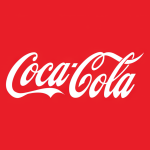Welcome to our dedicated page for Coca Cola Co news (Ticker: KO), a resource for investors and traders seeking the latest updates and insights on Coca Cola Co stock.
The Coca-Cola Company (NYSE: KO) is a total beverage company in the soft drink manufacturing industry, with products sold in more than 200 countries and territories. This news page focuses on company announcements that explain how Coca-Cola manages its global brand portfolio, its leadership, and its relationships with bottling partners and major event organizers.
Investors and followers of KO stock can use this feed to review earnings-related updates, such as quarterly results and outlook commentary, which the company reports through press releases and accompanying Form 8-K filings. These disclosures often include information on net revenues, operating income, earnings per share, unit case volume and value share trends across regions and beverage categories.
News from The Coca-Cola Company also covers corporate actions and governance, including CEO succession plans, board appointments and changes in operational leadership. Recent examples include the election of Henrique Braun as future Chief Executive Officer and the election of Max Levchin to the board of directors. Organizational updates related to digital transformation, such as the creation of a Chief Digital Officer role, are another recurring theme.
Readers will also find coverage of strategic transactions and partnerships, including refranchising steps involving bottling operations and agreements to sell stakes in bottlers like Coca-Cola Beverages Africa. In addition, Coca-Cola issues news about global marketing and sponsorship activities, such as the FIFA World Cup Trophy Tour by Coca-Cola, which highlights the company’s role in major sporting events and associated sustainability initiatives. For an ongoing view of how The Coca-Cola Company communicates its strategy, performance and brand activities, this KO news page provides a centralized stream of official releases.
The Coca-Cola Company (NYSE: KO) announced the election of three new corporate officers and declared a quarterly dividend of 44 cents per common share, payable on December 15, 2022, to shareholders on record as of December 1, 2022.
The new officers include Felix Poh (VP of Strategy and Corporate Development), Neeraj Tolmare (Global CIO), and Mark Westfall (Chief Services Officer), effective immediately. Their leadership is expected to enhance strategic capabilities and digital innovation within the company.
Brag House has announced a FIFA 23 tournament in partnership with Coca-Cola and McDonald’s for 16 Southern California schools. The competition starts on October 18, 2022, with finals taking place on November 5 at LA Live in Downtown Los Angeles. Over 60 students will compete, aiming for cash prizes of
The Coca-Cola Company (NYSE: KO) will release its third quarter 2022 financial results on October 25 before the market opens. An investor conference call is scheduled for 8:30 a.m. ET to discuss these results. Investors can join a webcast at www.coca-colacompany.com/investors, with downloadable files and a transcript available within 24 hours. The company emphasizes its status as a total beverage company, selling products in over 200 locations globally.
Molson Coors Beverage Company has announced the expansion of its exclusive agreement with The Coca-Cola Company to launch Topo Chico Spirited, a new line of spirit-based, ready-to-drink cocktails, set to debut in 2023. This initiative follows the successful launch of Topo Chico Hard Seltzer, which is currently the fastest-growing brand in its category. The new cocktails will include 100% real spirits, aiming to capture popular flavors from bars and restaurants across the U.S. Topo Chico Spirited will launch in over 20 markets, enhancing Molson Coors' above-premium product portfolio.
Evguenia Stoichkova has been appointed as the new president of Global Ventures at
The Coca-Cola Company (NYSE: KO) announced that Barry Simpson will step down as chief Platform Services officer on September 30. He will continue as a senior advisor until February 2023. Simpson has been instrumental in establishing the Platform Services organization since its inception in 2021. Following his departure, the organization will be restructured under two leaders, with Neeraj Tolmare appointed as chief information officer effective October 1. CEO James Quincey praised Simpson for his significant contributions during his 14-year career with the company.
The Coca-Cola Company has announced that Jennifer Mann will take over as president of the North America operating unit effective January 1, 2023, succeeding Alfredo Rivera, who is stepping down on December 31, 2022, after 38 years with the company. Rivera will remain as a senior advisor until March 2023. Mann, currently the president of Global Ventures, has been with Coca-Cola since 1997 and has held various leadership roles, indicating a strong succession plan within the company.
The Coca-Cola Company (NYSE: KO) announced that Chairman and CEO James Quincey will present on Sept. 8 at 10:30 a.m. ET during the Barclays Global Consumer Staples Conference. Investors can join via webcast at www.coca-colacompany.com/investors. A downloadable file and transcript will be accessible within 24 hours post-event. Coca-Cola operates in over 200 countries, offering products like Coca-Cola, Sprite, Fanta, and Dasani, while focusing on sustainability practices across its beverage portfolio.
The Coca-Cola Company reported a strong Q2 2022 with net revenues growing 12% to $11.3 billion and organic revenues increasing 16%. Despite an operating income decline of 22% and EPS falling 28% to $0.44, comparable EPS rose 4% to $0.70, showcasing resilience amid global challenges. The company gained market share in nonalcoholic beverages and reported a unit case volume increase of 8%. However, operating margins decreased to 20.7% from 29.8% in the prior year, primarily due to acquisitions and increased costs.
The Coca-Cola Company announced the retirement of Brian Smith as President and COO, effective October 1. John Murphy, the current CFO, will assume the additional role of President. Murphy has been with the company since 1988 and has overseen various operations including Mergers & Acquisitions and Global Strategy. Smith, who has been with Coca-Cola for 25 years, will remain as a senior executive until February 2023. The company is currently evaluating future plans for the COO role, with operating unit presidents reporting to CEO James Quincey on an interim basis.

